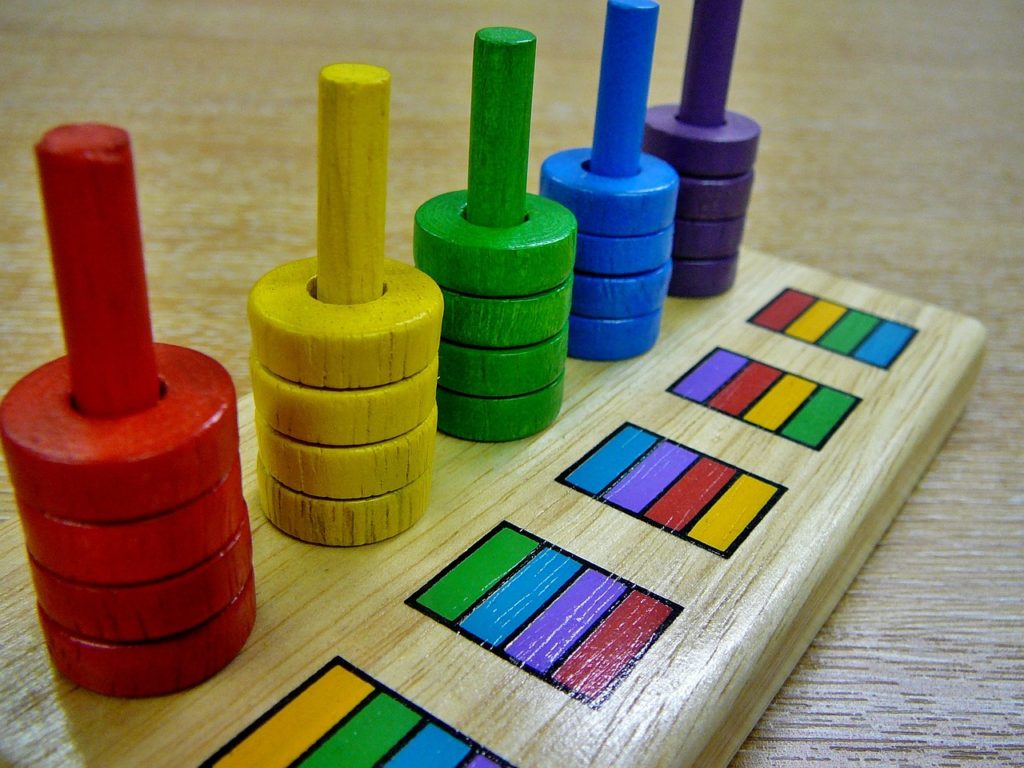The Power of Memory Games for Kids
Memory games have long been recognized as a valuable tool for enhancing cognitive skills and promoting child development. These games not only provide entertainment but also offer numerous benefits for children. Let’s explore why memory games are beneficial, how they enhance cognitive skills, and their role in child development.

Why Memory Games are Beneficial for Kids
Memory games offer a wide range of benefits for children. By engaging in these games, kids can improve their concentration, focus, and attention span. Memory games also help to enhance problem-solving skills, as children need to remember the location of different objects or cards to successfully match them. Additionally, these games promote the development of visual and spatial memory, which can be valuable in various learning contexts.
Playing memory games can also have a positive impact on a child’s social and emotional development. These games often involve turn-taking, which helps children learn patience and develop important social skills. Moreover, successfully completing memory games boosts a child’s self-confidence and provides a sense of achievement.
How Memory Games Enhance Cognitive Skills
Memory games are specifically designed to stimulate and enhance cognitive skills in children. These games require kids to use their working memory, which is responsible for temporarily storing and processing information. By exercising their working memory, children can improve their ability to retain and recall information.
Memory games also help children develop their problem-solving and critical thinking skills. When trying to remember the location of specific items or cards, children must employ logical reasoning and strategic thinking. This cognitive engagement strengthens their analytical skills and trains them to think systematically.
The Role of Memory Games in Child Development
Memory games play a vital role in the overall development of children. They not only provide entertainment but also contribute to the growth of essential cognitive skills. By engaging in memory games, children can enhance their memory capabilities, improve their concentration, and boost their mental agility. These skills are not only beneficial in academic settings but also in various aspects of daily life.
Moreover, memory games can be a valuable bonding activity for parents and children. Playing memory games together creates opportunities for quality time and strengthens the parent-child relationship. This shared experience fosters communication, cooperation, and mutual understanding.
Incorporating memory games into a child’s routine can be an effective way to promote their cognitive development and facilitate a fun and educational atmosphere. With the wide variety of memory games available, parents can choose games that align with their child’s interests and learning needs.
As parents explore different types of games to engage their children, it’s important to consider a variety of options, such as cooking games for kids, party games for kids, board games for kids, card games for kids, math games for kids, puzzle games for kids, animal games for kids, word games for kids, fun kids games, and music games for kids. By incorporating memory games into daily routines, parents can empower their children’s minds and support their cognitive growth.
Types of Memory Games
Memory games are an excellent way to engage kids and improve their cognitive skills. There are different types of memory games that can provide hours of entertainment while enhancing memory and concentration. Let’s explore three popular types: matching card games, sequence memory games, and object memory games.
Matching Card Games
Matching card games are a classic choice for memory training. The game typically involves a set of cards with identical pairs of images or symbols. The cards are placed face-down, and players take turns flipping them over to find matching pairs. The objective is to remember the location of each card and make successful matches.
Matching card games help kids develop visual memory and improve their ability to recognize patterns and associations. They also encourage concentration and focus, as players must pay attention to the cards being flipped by others. These games are not only fun but also beneficial for memory development.
Sequence Memory Games
Sequence memory games challenge kids to remember and reproduce a specific sequence of items or actions. For example, a game might require players to remember and replicate a sequence of colors, sounds, or movements. As the game progresses, the sequences become longer and more complex, putting players’ memory skills to the test.
Sequence memory games enhance both short-term and long-term memory. They improve kids’ ability to remember and recall information in a specific order. These games also promote concentration, attention to detail, and logical thinking.
Object Memory Games
Object memory games involve remembering the location or characteristics of various objects. For example, a game might require players to memorize the position of different objects on a tray and then recall their placement after the objects are covered. These games challenge kids to use their visual memory and mental imagery skills.
Object memory games enhance kids’ ability to remember visual details and spatial relationships. They also improve their attention to detail and observation skills. These games can be a fun way for kids to develop their memory while engaging in playful and interactive activities.
By incorporating different types of memory games into playtime, parents can help their kids strengthen their memory skills and cognitive abilities. Whether it’s matching card games, sequence memory games, or object memory games, these activities provide a valuable opportunity for kids to have fun while exercising their memory muscles. To explore more fun games for kids, check out our articles on cooking games for kids, party games for kids, board games for kids, card games for kids, math games for kids, puzzle games for kids, animal games for kids, word games for kids, fun kids games, and music games for kids.
Best Memory Games for Kids
Memory games are a fantastic way to engage and entertain kids while also boosting their cognitive skills. Here, we will explore three popular memory games that are loved by kids of all ages.
Memory Game 1
Memory Game 1 is a classic matching card game that challenges children to find pairs of matching cards. The game consists of a set of cards with various images or symbols printed on them. The cards are shuffled and laid face-down on a table or playing surface. Players take turns flipping over two cards at a time, trying to find a matching pair. If they succeed, they keep the pair and continue their turn. If not, they flip the cards back over and it becomes the next player’s turn.
Memory Game 1 not only enhances a child’s memory skills but also improves their concentration and focus. It encourages them to pay attention to details and remember the position of different cards. Additionally, playing this game can help develop their social skills as they take turns and interact with other players.
Memory Game 2
Memory Game 2 is a sequence memory game that challenges children to recall and repeat a specific sequence of sounds, colors, or actions. The game starts with a sequence of events performed by one player. The next player then has to repeat the sequence correctly. As the game progresses, the sequences become longer and more challenging.
This game is excellent for improving a child’s auditory and visual memory, as well as their ability to follow instructions. It helps them strengthen their working memory by remembering the sequence of events and reproducing them accurately. Additionally, Memory Game 2 promotes critical thinking and problem-solving skills as players strategize and analyze the sequence.
Memory Game 3
Memory Game 3 is an object memory game that requires children to remember the location of hidden objects. The game involves hiding a number of objects under cups or within a designated area. Players take turns uncovering the cups or searching for the hidden objects within the designated area. The goal is to remember the location of the objects and find matches.
This game hones a child’s visual memory and observation skills. It challenges them to pay attention to details and remember the positions of multiple objects. Memory Game 3 also promotes logical thinking and spatial awareness as children strategize their search for hidden objects.
By engaging in these memory games, children can have fun while enhancing their cognitive abilities. Remember to adjust the difficulty levels of the games based on the age and skill level of your child. Encourage them to play regularly to reap the full benefits of these memory-boosting activities. For more exciting games for kids, check out our category on fun kids games.
Tips for Playing Memory Games with Kids
Playing memory games with kids can be a fun and educational way to enhance their cognitive skills. To make the most out of these games and create a positive experience for your child, consider the following tips:
Creating a Supportive Environment
Creating a supportive and encouraging environment is essential when playing memory games with kids. Make sure to provide a comfortable and distraction-free space where your child can focus on the game. Offer praise and positive reinforcement to boost their confidence and motivation. Remember, the goal is to have fun and foster a love for learning, so keep the atmosphere light-hearted and enjoyable.
Adjusting Difficulty Levels
Memory games come in different levels of difficulty, and it’s important to choose games that are appropriate for your child’s age and skill level. Start with simpler games for younger children and gradually progress to more challenging ones as they improve their memory skills. Adjusting the difficulty level ensures that the game remains engaging and enjoyable for your child without becoming too frustrating or overwhelming.
Making it Fun and Engaging
To keep your child engaged and excited about memory games, make them fun and interactive. Incorporate themes, colors, and interesting visuals into the games to capture their attention. You can also personalize the games by using pictures of family members or familiar objects. Engage in friendly competition by playing together or involving siblings and friends. Remember to maintain a positive and enthusiastic attitude to make the experience enjoyable for everyone involved.
By following these tips, you can create an enjoyable and beneficial experience for your child while playing memory games. Remember to check out our other articles on cooking games for kids, party games for kids, board games for kids, card games for kids, math games for kids, puzzle games for kids, animal games for kids, word games for kids, fun kids games, and music games for kids for more exciting ways to engage and entertain your child.






